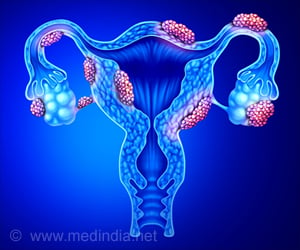A woman in Nevada has won a strange court battle for the right to keep the placenta with her after her daughter's birth.
The placenta belongs to whom? To the mother or to the nursing home?
Clark County District Court Judge Susan Johnson of Clark County in Nevada, USA, has ruled in the mother’s favour.On Tuesday she granted a preliminary injunction, ordering Sunrise Hospital and Medical Center in southern Nevada to return the placenta to 30-year-old Anne Swanson.
The hospital had refused to give the uterine lining to Swanson following the April 12 Caesarean birth of her daughter, with officials calling it contaminated bio-hazardous waste.
The judge ordered the hospital not to destroy the placenta, which was frozen, and ordered that it be turned over to Swanson within two weeks.
When Anne Swanson gave birth to her first child in 2002, she had experienced postpartum depression, that feeling of extreme sadness that researchers believe is brought on by a severe hormonal plunge.
So Swanson didn't want to go through that again when, three weeks ago, she gave birth to her daughter, Maxanne by emergency Caesarean section.
Advertisement
Swanson had planned to give her placenta to a friend to be dried, ground into a powder and packed into capsules.
Advertisement
The practice, known as placentophagy, is far from widespread and is received with great skepticism by more traditional medical experts. But among a small but vocal contingent of expectant mothers and proponents, it is strongly believed that the organ created by the woman's body to pass nutrients between mother and fetus and is expelled after birth is rich in chemicals that can help mitigate fluctuations in hormones believed to cause postpartum depression.
"I feel that it is what we as women are meant to do with the placenta," says Jodi Selander, a North Las Vegas natural and herbal healing enthusiast and who offers encapsulation services.
After Maxanne's birth, though, the hospital's staff said they were not comfortable releasing the placenta.
"This was my last pregnancy. I am not going to have another placenta. To me, it was a big deal to have it, whether I was using it for medicinal reasons or planting it.''
As the hospital resisted, Swanson moved the court, successfully, as it turned out.
But in a change of heart Swanson says she doesn’t plant to ingest but only to bury it, but why, it is not clear.
But a spokeswoman for Sunrise said they would comply with the court order, but reasoned, "Like any other body part, placentas contain a lot of blood, which can carry infectious diseases such as HIV and hepatitis …We take great measures to prevent disease transmission.
Sarah Jones, a Las Vegas mother of three who ingested the placenta of her youngest seven months ago, argues that if a woman wants to keep something that came out of her own body, that should be her right.
"It's kind of crazy, but me ingesting my placenta doesn't hurt anyone else. Even if people are grossed out, I have the right to do it,'' said Jones, 29, who delivered her youngest at home and didn't have to deal with hospital policies afterward.
Jones said Swanson's case upset her. The two are members of Las Vegas-based Birth Year Network. The nonprofit organization provides support and education to future parents on various topics, including home birthing and herbal medicine.
Selander said if she receives a placenta from a client who delivered at a hospital, it is contained in a tightly sealed clear bag that is tagged with the hospital's name and marked as a biohazard. Encapsulating placentas is simple, requiring only a few common kitchen appliances and ingredients, she said.
For the most part, Selander washes the placenta, steams it, slices it, and places it into a professional grade dehydrator. It is then ground up into a powder and put into non-gelatin capsules. The process takes two to three days.
There is no Nevada law prohibiting hospitals from returning placentas to mothers. But several Las Vegas area hospitals told the Las Vegas Review-Journal the organ is usually destroyed unless a physician designates it for medical tests or a patient seeks it for specific religious or cultural reasons.
Placentophagy is raising eyebrows at the U.S. Food and Drug Administration. But spokeswoman Kris Mejia was guarded in her reaction. She said that some statements on the Jodi Sleander’s website placentabenefits.info would have to be looked at more carefully.
"Human placental capsules that make treatment claims … must be accompanied by well-designed and controlled clinical studies to support approval/licensure," Mejia wrote in an e-mail.
Source-Medindia
SRM/C






